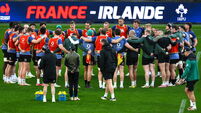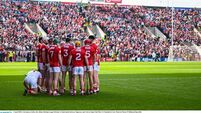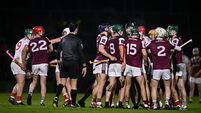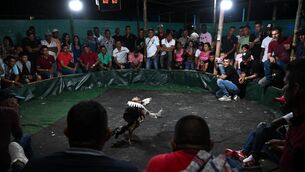Time catching up with days of the GAA dual star

This Hall of Fame has been on the go for a couple of years, having begun with the teams of the millennium, with a couple of players included in its ranks every year thereafter. I could use the US term, inducted, but there’s something vaguely suggestive of a doctor putting on surgical gloves about that term. I think we’ll stick with included.
My point here is that it appears people felt there were candidates who deserved to be members of such an august group ahead of Jimmy Barry-Murphy, even though there are many others, myself included, who would question the validity of such a concept if it did not have the man from St Finbarr’s as a founding member, if not actually providing the basic criteria for inclusion: All-Ireland-deciding goals at 19 in one code; All-Ireland-deciding goal in another code five years later.












